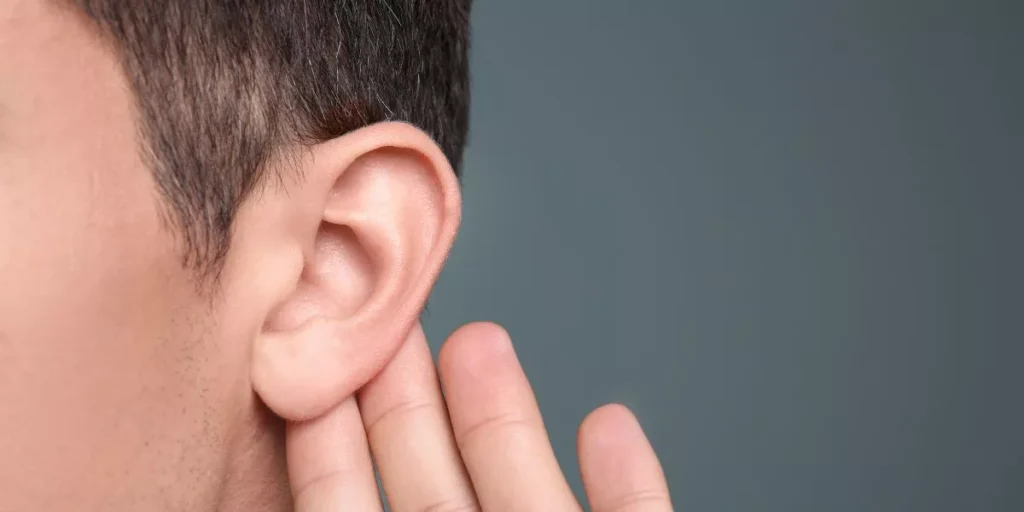
Listening to music through headphones can be a common daily habit for many, but have you ever considered the potential impact on your hearing health? The convenience and enjoyment that headphones provide may come at a cost that is often overlooked. As you immerse yourself in your favorite tunes, the volume levels might be doing more harm than you realize. Before you hit play on your next playlist, take a moment to ponder the question: Can headphones truly cause hearing loss?
Understanding the Ear Anatomy
To understand how headphones can potentially cause hearing loss, it’s crucial to grasp the intricacies of the ear anatomy. The ear is divided into three main parts: the outer ear, middle ear, and inner ear. Sound waves enter the outer ear and travel down the ear canal, causing the eardrum to vibrate. These vibrations are then transmitted to the tiny bones in the middle ear, known as the ossicles. The ossicles amplify the sound and send it to the inner ear, where the cochlea is located.
Within the cochlea, there are thousands of hair cells that convert sound vibrations into electrical signals. These signals are then sent to the brain through the auditory nerve, allowing us to perceive and interpret sounds. However, prolonged exposure to loud noises, such as high volume through headphones, can damage these delicate hair cells. Once damaged, these cells don’t regenerate, leading to permanent hearing loss. Understanding the ear anatomy helps highlight the importance of protecting your hearing by being mindful of headphone volume levels.
Impact of Loud Music Exposure
Excessive exposure to loud music can have detrimental effects on your hearing health. When you listen to music at high volumes for extended periods, the delicate structures in your ears can become damaged. The loud sound waves can cause the tiny hair cells in your inner ear to bend or break, leading to hearing loss over time. These hair cells are crucial for converting sound vibrations into electrical signals that your brain interprets as sound. Once they’re damaged, they can’t regenerate, resulting in permanent hearing impairment.
Additionally, exposure to loud music can also cause tinnitus, a condition characterized by ringing, buzzing, or other noises in the ears. This persistent noise can be disruptive and impact your quality of life. To prevent hearing damage from loud music, it’s essential to listen at moderate volumes and take breaks to give your ears a rest. Using noise-canceling headphones can also help reduce the need to turn up the volume to dangerous levels. Remember, protecting your hearing now will benefit you in the long run.
Signs of Hearing Damage
Listening to loud music for prolonged periods can lead to irreversible damage to your hearing, resulting in various signs of hearing damage that you should be aware of. One common sign is experiencing a ringing or buzzing sensation in your ears, known as tinnitus.
If you notice that sounds seem muffled or unclear, it could indicate damage to your hearing. Difficulty understanding speech, especially in noisy environments, may also be a sign of hearing damage.
You might find yourself increasing the volume on your devices to levels that others consider too loud, which can further harm your ears. Additionally, feeling pain, pressure, or fullness in your ears without any underlying medical cause could be a sign of damage.
If you frequently ask others to repeat themselves or have trouble following conversations, it’s essential to consider the possibility of hearing damage. Being vigilant about these signs can help you address any potential issues early and prevent further harm to your hearing.
Preventative Measures for Ear Health
Wondering how you can protect your ears from potential damage? There are several simple yet effective preventative measures you can take to safeguard your ear health. First and foremost, be mindful of the volume level when using headphones or earbuds. It’s recommended to listen at 60% of the maximum volume for no more than 60 minutes at a time to reduce the risk of hearing damage. Additionally, consider using noise-canceling headphones to block out external sounds, allowing you to listen at a lower volume.
Taking regular breaks from prolonged headphone use is another crucial step in preventing hearing loss. Give your ears a rest every hour to reduce the overall exposure to loud sounds. Furthermore, maintaining good hygiene by regularly cleaning your earphones can help prevent ear infections that may lead to hearing problems.
Lastly, consider investing in high-quality headphones that prioritize sound clarity over excessive volume. By being proactive and implementing these preventative measures, you can enjoy your music while protecting your precious hearing.
Trending Products

![Apple Watch Series 10 [GPS + Cellular 46mm case] Smartwatch with Silver Aluminium Case with Denim Sport Band – M/L. Fitness Tracker, ECG App, Always-On Retina Display, Water Resistant](https://shopurbanjustice.shop/wp-content/uploads/2025/03/61szkHk7xfL._AC_SL1500_-499x593.jpg)
![Apple Watch Series 10 [GPS + Cellular 46mm case] Smartwatch with Natural Titanium Case with Stone Grey Sport Band – M/L. Fitness Tracker, ECG App, Always-On Retina Display, Water Resistant](https://shopurbanjustice.shop/wp-content/uploads/2025/03/71rYIVw1pML._AC_SL1500_-499x593.jpg)
![Apple Watch Series 10 [GPS + Cellular 42mm] with Jet Black Aluminium Case with Ink Sport Loop. Fitness Tracker, ECG App, Always-On Retina Display, Carbon Neutral with AppleCare+ (2 Years)](https://shopurbanjustice.shop/wp-content/uploads/2025/03/616ImQDeb3L._AC_SL1500_-500x556.jpg)










